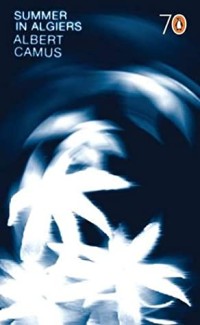
Summer in Algiers
تأليف : Albert Camus
النوعية : الفكر والثقافة العامة
نعتذر، هذا الكتاب غير متاح حاليًا للتحميل أو القراءة لأن المؤلف أو الناشر لا يسمح بذلك في الوقت الحالي.
حفظ
Summer in Algiers by Albert Camus Camus and his writing are intimately bound up with his native Algeria. These three essays evoke different aspects of the place. The title essay, 'The Minotaur' and 'The Return to Tipasa' are extracted from Noces (1950) and L'été (1954). Camus and his writing are intimately bound up with his native Algeria. These three essays evoke different aspects of the place. The title essay, 'The Minotaur' and 'The Return to Tipasa' are extracted from Noces (1950) and L'été (1954).
Summer in Algiers by Albert Camus Camus and his writing are intimately bound up with his native Algeria. These three essays evoke different aspects of the place. The title essay, 'The Minotaur' and 'The Return to Tipasa' are extracted from Noces (1950) and L'été (1954). Camus and his writing are intimately bound up with his native Algeria. These three essays evoke different aspects of the place. The title essay, 'The Minotaur' and 'The Return to Tipasa' are extracted from Noces (1950) and L'été (1954).
المزيد...



